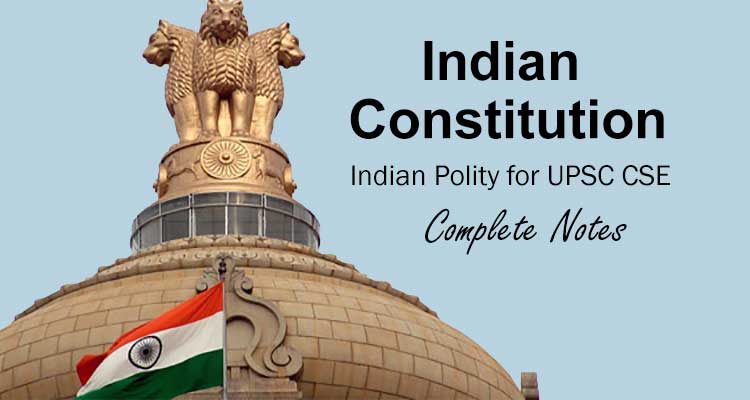Important Questions Related To Indian Constitution For All Examinations Part 29
Daily quiz, Indian Political Science 0 Comments
This post of Indian Constitution Questions and Answers is very important for SSC,1st Grade Teacher Study Material Notes, Kendriya Vidyalaya Sangathan Notes, And Constitution of India related best GK General GK Question study materail notes in hindi english for competitive Exams Objective and Subjective Notes center level state level competition exam and SSC CGL GD Clerk LDC UP Police Delhi Police Rajasthan Police Patwari exam CTET REET PSTET CTET, TGT, PGT, B.Ed HTET CSAT NDA CDS RPSC 1st Grade 2nd Grade Teacher railway loco pilot group d group c Exam RPF, RSMSSB WOMAN SUPRVIOR and daily GK Updats 08-03-2019 And Read more All articles of Indian constitution for upcoming exams.
Indian Politics GK, राजनीतिक विज्ञान सामान्य ज्ञान, राजनीतिक विज्ञान GK samanya gyan,
बेसिक नॉलेज ऑफ पॉलिटिक्स political science gk hindi me इंडियन पॉलिटिक्स इन हिंदी political science important questions in hindi political awareness polity question answer in hindi पॉलिटिकल साइंस नोट्स इंडियन पॉलिटिक्स जनरल नॉलेज इन हिंदी पॉलिटिकल साइंस नोट्स इन हिंदी PDF
Important Questions Related to Indian Constitution part 29
Question(1).Who is the guardian of Indian Constitution?
भारतीय संविधान का अभिभावक कौन है?
(A) Parliament
(B) Supreme Court
(C) President
(D) Prime Minister
Question(2).What is the structure of the Indian Constitution?
भारतीय सविधान की सरचना किस प्रकार की है?
(अ) कुछ एकात्मक, कुछ कठोर
(ब) अपरिवर्तित
(स)अ और ब दोनों
(द) सभी असतय है
Question(3). Who called Indian federalism as cooperative federalism?
भारतीय संघवाद को किसने सहकारी संघवाद कहा?
(A) Jawaharlal Nehru
(B) B.R. Ambedkar
(C) Mahatma Gandhi
(D) G. Austin
(अ) जवाहरलाल नेहरू
(ब) बी आर अम्बेडकर
(स) महात्मा गांधी
(द) जी. ऑस्टिन ने
Question(4).What is the constitution of India?
भारत का सविधान कैसा है?
(अ) लिखित
(ब) विश्व का सबमे व्यापक संविधान
(स) अ और ब दोनों
(द) सभी असतय है
Question(5). What is the nature of Indian Constitution?
भारतीय सविधान का स्वरूप कैसा है?
(A) Structural in structure
(B) Unitary in structure
(C) Both of the above
(D) all is inconvenient
(अ) संरचना में संघात्मक
(ब) संरचना में एकात्मक
(स) उपरोक्त दोनों
(द) सभी असतय है
Question(6). whom does the Indian Constitution get its right?
भारतीय सविधान अपना अधिकार किससे प्राप्त करता है?
(A) Parliament
(B) President
(C) High Court
(D) From the Indian public
(अ) संसद
(ब) राष्ट्रपति
(स) उच्च न्यायालय
(द) भारतीय जनता से
Question(7). What is Vaidya sovereignty in India?
भारत में वैद्य प्रभुसत्ता किस में निहित है?
(A) In the Constitution
(B) in Parliament
(C) President
(D) Prime Minister
(अ) संविधान में
(ब) संसद में
(स) राष्ट्रपति
(द) प्रधानमंत्री
Question(8). Amendment was reduced from 21 years to 18 years in which amendment?
मताधिकार की आयु 21 वर्ष से घटाकर 18 वर्ष किस संशोधन में कर दी गई?
(A) 61st Amendment
(B) 68th Amendment
(C) 42nd Amendment
(D) 52nd Amendment
(अ) 61वा संशोधन
(ब) 68वाँ संशोधन
(स 42वाँ संशोधन
(द) 52वाँ संशोधन
Question(9). What is the arrangement of unemployment allowance for unemployed people?
बेरोजगार लोगों के लिए बेरोजगारी भत्ते की व्यवस्था करना किससे सम्बंधित है?
(अ) मौलिक अधिकार
(ब) मौलिक कर्तव्य
(स) निदेशक तत्व
(द) प्रस्तावना
Question(10). There a single constitution for union and states in India?
भारत में संघ और राज्यों के लिए एक ही संविधान है?
(अ) सिक्किम को छोड़कर
(ब) जम्मू-कश्मीर को छोड़कर
(स) नागालैंड को छोड़कर
(द) तमिलनाडु को छोड़कर
Check: All Answers
व्याख्या:-(ब) सर्वोच्च न्यायालय
व्याख्या:-(अ) कुछ एकात्मक, कुछ कठोर
व्याख्या:-(द) जी. ऑस्टिन ने
व्याख्या:-(स) अ और ब दोनों
व्याख्या:-(अ) संरचना में संघात्मक
व्याख्या:-(द) भारतीय जनता से
व्याख्या:-(अ) संविधान में
व्याख्या:-(अ) 61वा संशोधन
व्याख्या:-(स) निदेशक तत्व
व्याख्या:-(ब) जम्मू-कश्मीर को छोड़कर



